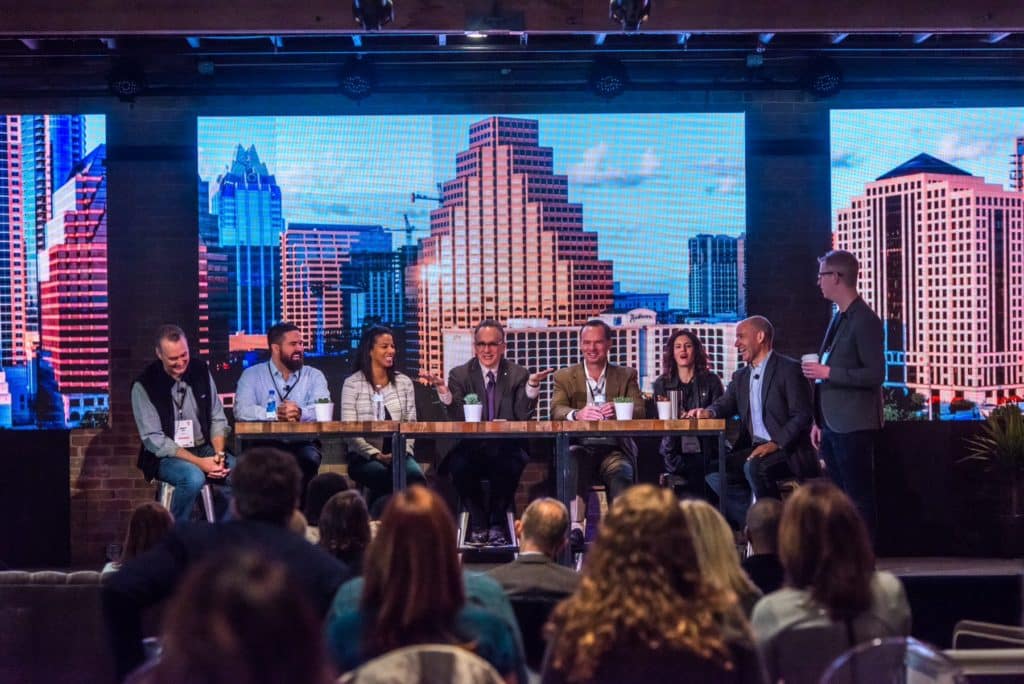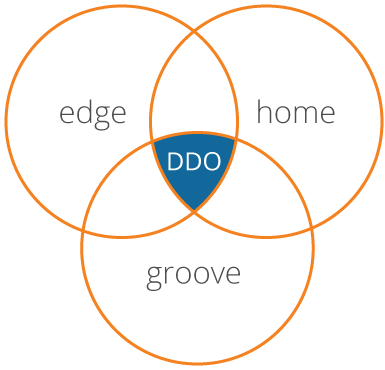

February 3, 2017
Great cultures

I was a facilitator and closer for the Culturati Summit in Austin, TX. It’s a gathering not only of culture authors, but people in companies, boots on the ground and implementing. Here are the notes I thought would be helpful to share:
1. Getting Real
It used to be about hype and spin and staying positive. Now it’s all about the reality check. It’s about being authentic over looking good.
2. Embracing contradictions
We want to succeed, but we also want to make it safe to fail. We don’t want to get political at work, but we want people to be free to speak their minds. We want stability but there’s a need to disrupt ourselves before someone else does.
3. Values as clarity
There are so many distractions and interruptions that values are the only thing that really keeps us on track. It keeps us deliberate rather than being reactionary.
There was a talk on the new book An Everyone Culture that advocates for organizations that are constantly growing their people. I found this model interesting because it shows the balance of challenging people (edge) supporting people (home), and creating systems and processes (groove).

Anders Ericsson, author of Peak: Secrets from the New Science of Expertise, shared a fascinating way to improve performance across industries. The best way is not more and more practice. It’s this formula to generate the feedback loop of success:
Rinse and repeat.
I’ve seen how incredibly this works for me as a speaker. I’m excited to see if others apply it to their industries.
Note, studies have shown that people are really on for peak performance for 4-5 hours a day. Makes me wonder – What if a company had people work from 9am to 3pm – with just highly focused work? I wonder if they’d be more productive and they’d have time to do the other things that make them happy (or do things like pick their kids up after school).
November 27, 2016
Great cultures ,Hacks
One of the biggest challenges I hear from top performing cultures is how to keep their talent. In fact, some have speculated that the old adage, “People don’t quit companies, they quit their managers” is no longer true.
Top companies know that the key to keeping people is a strong progression plan, but they don’t know how to execute on it.
Russ Laraway figured out a great approach to progression while at Google. He discovered that a past/present/future conversation that is based on individuals (rather than positions and titles) is key.
This is the conversation to be like Barbara Walters and figure out what they have loved in the past. It’s about connecting the dots in their story.
The interviewer listens for the skills being developed and ask about what the person sees in their future (from the present view).
Now they co-create a plan together to help that person achieve those goals (both personally and professionally). The interesting part about the plan is that it’s not just about developing their skills, it’s also about developing their network (because that’s how you really get things done). I would also advise building their communication skills.
NOTE: As with any culture hack, it has to be co-created, and you have to keep experimenting. There is no “right way.”
October 26, 2016
Great cultures
A very different episode, completely guided by your questions!
September 30, 2016
Great cultures
I was visiting with Stewart Emery, author of Success Built to Last (and many other books). We were standing over his La Marzocco GS/3 espresso machine. He was telling the easiest hack to make great coffee – “Start with really great coffee.”
Yes, there’s a lot more to it that that, but what a head start you have with great coffee. He shared with me how the same thing applies to business:
“If you want to deliver great customer service, start with great customers.”
He said we have more choice that we think – Whom we choose to serve and market. It’s far easier when we choose great customers whom we enjoy serving and being around. Then customer service becomes easy (or at the very least, desirable!)
September 21, 2016
Great cultures
 The glasses retailer Warby Parker has found that letting coders pick the projects they want to work on is getting them better results and better engagement. Once again, opt-in leads the way.
The glasses retailer Warby Parker has found that letting coders pick the projects they want to work on is getting them better results and better engagement. Once again, opt-in leads the way.